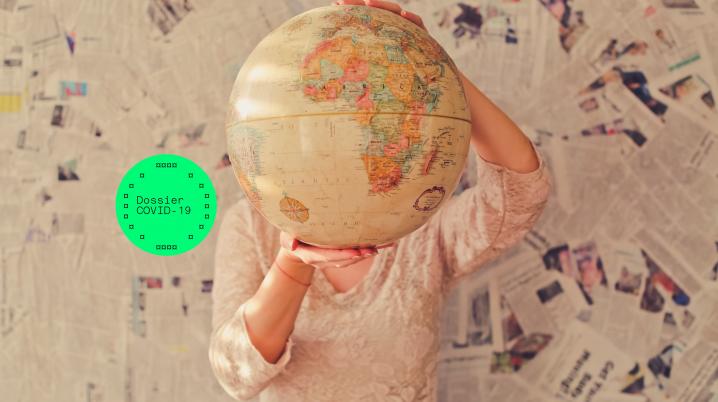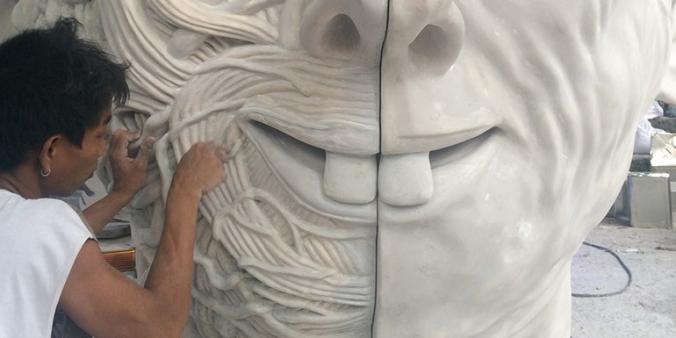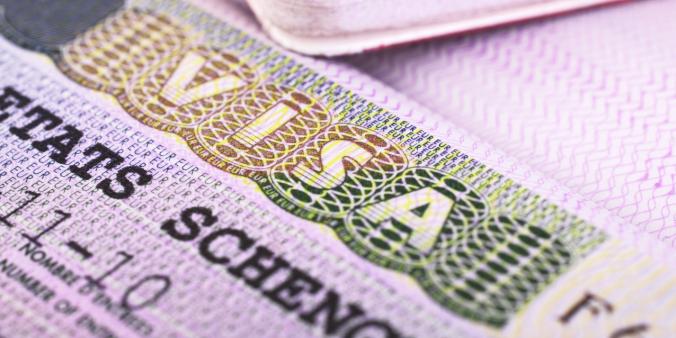**UPDATE**
The Dutch government has decided to lift the EU entry ban for the Netherlands as of 17 September 2022.
The government's decision means that as of 17 September 2022, no COVID-19-related restrictions or requirements apply to travellers entering the Netherlands, including those from countries outside the EU/Schengen area. Read more
---------------------------------------------------
The EU entry ban is in force since 19 March 2020 limiting travel to the European Union and the Netherlands. This has serious implications for international cultural mobility. The ban means that most non-EU citizens are not allowed to enter the Schengen area. Fortunately, there is a growing list of 'safe countries' whose residents are exempted from the entry ban.
Please verify if you fall under one of the following exemption categories:
1. Check if the country you are coming from is on the list of 'safe countries'
If you are a resident or citizen of a country that is on the EU’s list of ‘safe countries’, the entry ban doesn’t apply to you. This growing list of countries currently includes Argentina, Australia, Bahrain, Canada, Chile, China (subject to reciprocity), Colombia, Indonesia, Jordan, Kuwait, Namibia, New Zealand, Qatar, Peru, Rwanda, Saudi Arabia, South Korea, United Arab Emirates and Uruguay.
The EU list of 'safe countries' is regularly updated and implemented by EU member states. Please check if your country of destination in the EU has already done so before travelling. There usually is a delay between the date of adding new countries to the EU's list and the date these measures come into effect on a national level. Check the Dutch list of safe countries here.
Do mind that regular visa requirements based on nationality still apply. If you for example are a citizen of Thailand living in a safe country like New Zealand for example, you would still need to apply for a Schengen visa.
2. Check if you are fully vaccinated with a vaccine approved by the EMA or WHO
From 1 July 2021 onwards: travellers fully vaccinated with a vaccin approved by the World Health Organisation (WHO) or the European Medicines Agency (EMA) can be exempted from the EU entry ban and enter the Netherlands*.
At the moment you are fully vaccinated**:
- 14 days after receiving your second dose of a two-dose vaccine approved by the EMA or that falls under the WHO Emergency Listing; or
- 28 days after receiving the single-dose Johnson & Johnson (Janssen) vaccine; or
- 14 days after after receiving 1 dose of any of these vaccines after a coronavirus infection less than 6 months before vaccination.
Your vaccination certificate must:
- have been issued based on full vaccination**. That means that:
- you received one dose of a single-dose vaccine (Janssen); or
- you received two doses of a two-dose vaccine; or
- you received one dose of a two-dose vaccine and it has been confirmed that you had SARS-CoV-2 in the 6 months before vaccination;
- have been issued in one of the following languages:
- Dutch, English, German, French, Italian, Portuguese or Spanish;
- include the following:
- information identifying the person who has been vaccinated;
- information demonstrating that the person in question has been fully vaccinated against SARS-CoV-2;
- the name of the vaccine and the name of the manufacturer or marketing authorisation holder of each dose of vaccine administered;
- the date on which each dose of vaccine was administered;
- the name of the country in which the vaccine was administered;
- information identifying the issuer of the vaccination certificate.
* Please note that most EU/EEA countries only accept travellers that are fully vaccinated with a vaccine approved by the European Medicines Agency (EMA). This means that if you have been vaccinated with a vaccine on the WHO Emergency Listing, make sure to book a direct flight to the Netherlands.
** Plans are currently made on EU-level to limit the validity of vaccination certificates. All vaccinated travellers should either have completed their primary vaccination series less than 9 months ago or reveived an additional dose (booster shot). This new policy will most likely start on 10 January 2022.
3. Check if you qualify for the exemption for cultural or creative professionals
If a cultural organisation wishes to invite a cultural or creative professional that isn't based in one of the countries on the 'safe list' nor fully vaccinated with a vaccine approved by EMA or WHO, maybe that professional falls under the scope of the exemption to the entry ban based on cultural interest.
Cultural and creative professionals that serve a Dutch social, cultural and economic interest are invited to apply for an exemption. For example directors, conductors, choreographers, musicians, but also restorers and conservators. If this is the case depends on whether:
- The professional is invited by the Dutch cultural or creative institution for his/her/them unique qualities and skillset and receives a fee for the work;
- This professional’s physical presence and participation is essential to the organisation’s overall ability to conduct its activities;
- The income generated from this activity should be substantial in relation to the financial situation of the inviting institution. This proves the added economic value of the professional.
What should an invitation letter include?
The inviting organisation composes an invitation letter that includes information on all four aspects indicated above. The letter should be written on the organisation's letterhead and include:
- the name and address of the professional in his/her/their country of residence;
- the date of the activities (both repetitions and stage dates, for example) for which the professional is invited;
- information about the unique qualities and skillset of the professional and the renumeration he/she/they receive in return;
- an explanation on why the presence and participation of the professional is vital for the organisation to continue its planned activities, or in other words, why the activity can't continue without this professional physically present; and, lastly,
- name of the responsible person at the inviting organisation, signature and date.
Apply with the Performing Arts Fund
The Performing Arts Fund has the task to handle and decide on applications for permission to enter the Netherlands. You can find additional information on the application process here (in Dutch only). It takes up to 5 days before you receive their decision.
The Dutch government has indicated that it wishes to apply the exemption as limited as possible. Therefore it is important to substantiate your arguments as best as you can to fall within the scope of the exemption.
Please note that the invitation letter can also be used to prove that the cultural or creative professional is allowed to interrupt self-quarantine. You can find more information about the rules on self-quarantine upon arrival here.
Also be aware that these exemptions are only valid for the Netherlands, which means that it is advised to book direct flights to the Netherlands as other Member States do not need to allow you to cross their border on the basis of the Dutch exemption.
Please also check the Dutch government's checklist for travel to the Netherlands here. For further questions on mobility and the coronavirus, please contact DutchCulture’s Mobility Info Point.





